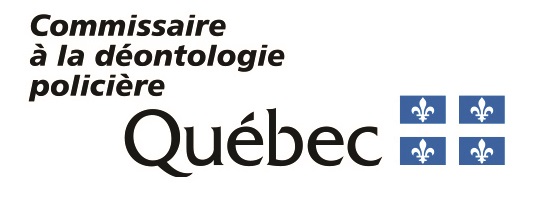File a complaint
Measures for First Nations and Inuit
Measures for First Nations and Inuit
Photo credit : Jean-Louis Régis, Innu photographer. Kwe! Event
In the spirit of the various recommendations of commissions of inquiry, in particular the Truth and Reconciliation Commission, the Government Action Plan for the Social and Cultural Development of the First Nations and Inuit, the National Inquiry into Missing and Murdered Indigenous Women and Girls, as well as the Public Inquiry Commission on relations between Indigenous Peoples and certain public services in Québec, we have implemented and will implement various initiatives aimed at promoting the relevance and accessibility of our services for indigenous people in Quebec.
Translation of Information and Awareness Documents
Information documents on the process for filing a police ethics complaint have been translated and are now available in 5 indigenous languages: Cree, Innu, Inuktitut, Atikamekw and Anishinaabe.
Training on indigenous history and realities in Quebec has been developed and will be offered to all of our staff starting in the spring of 2022. The objective is to raise awareness among internal staff (analysts, conciliators, lawyers, investigators, etc.) when interacting with First Nations and Inuit people.
Data Collection and Reporting
We are currently working on compiling data on complaints made to First Nations and Inuit police forces. The objective is to examine whether certain findings will emerge from these analyses, and then share them with indigenous decision-makers.
Improvements are also underway to offer complainants the possibility of identifying themselves as indigenous (including their affiliation to a nation and community), for statistical purposes, via the new complaint form. This initiative is directly related to recommendation #4 of the Public Inquiry Commission on relations between Indigenous Peoples and certain public services in Québec.
Partnership With Indigenous Organizations
A partnership was created in the summer of 2021 between the Native Para-judicial Services of Quebec (SPAQ) and the Commissaire à la déontologie policière to make available an indigenous resource that can support and direct indigenous complainants to the appropriate services depending on the specificities of their situation and their needs. These services are available, among other things, via a confidential telephone line (1-833-753-2095) intended for indigenous people who are victims of verbal or physical abuse, discrimination, racial profiling, or any other complaint about any police officer or peace officer, including :
- Quebec police officers (on or off the community)
- special constables (e.g. courthouse, Société de transport de Montréal (STM))
- wildlife protection officers
- road controllers
- investigators from the Unité permanente anticorruption (UPAC) and the Bureau des enquêtes indépendantes (BEI).
This service is offered in French, in English and, at the request of the complainant, in Cree, Innu, Inuktitut and other indigenous dialects through the services of indigenous courtworkers.
Information sessions on the police ethics complaint process with First Nations and Inuit communities and organizations can be offered. Do not hesitate to request them!
We are also developing training on the rights and obligations of citizens in their interactions with police officers and peace officers as well as a customized version to the specific contexts of indigenous people in Quebec.
Changes in Internal Procedures
In the winter of 2021, the Commissaire à la déontologie policière created a procedure to promote cultural safery for conciliation-oriented complaints for which complainants are indigenous. At the complainant's request, the indigenous liaison officer will attempt to better meet their needs (for example, provide an interpreter in their indigenous language, facilitate the presence of a companion offering spiritual support, or that the liaison officer be present during the conciliation to promote communication between the parties in consideration of the indigenous realities while remaining neutral and impartial).
Creation of Prevention Tools
As part of the upcoming development of a prevention program, tools designed specifically for indigenous populations in Quebec will be created. A consultation and co-development plan with First Nations and Inuit will be developed to guide the creation of tools that will meet the expressed needs.
<< Services to Indigenous Complainants
File a complaint
Need help?
If you want more information or if you need help drafting your complaint, you can contact us.
deontologie-policiere.quebec@msp.gouv.qc.ca
